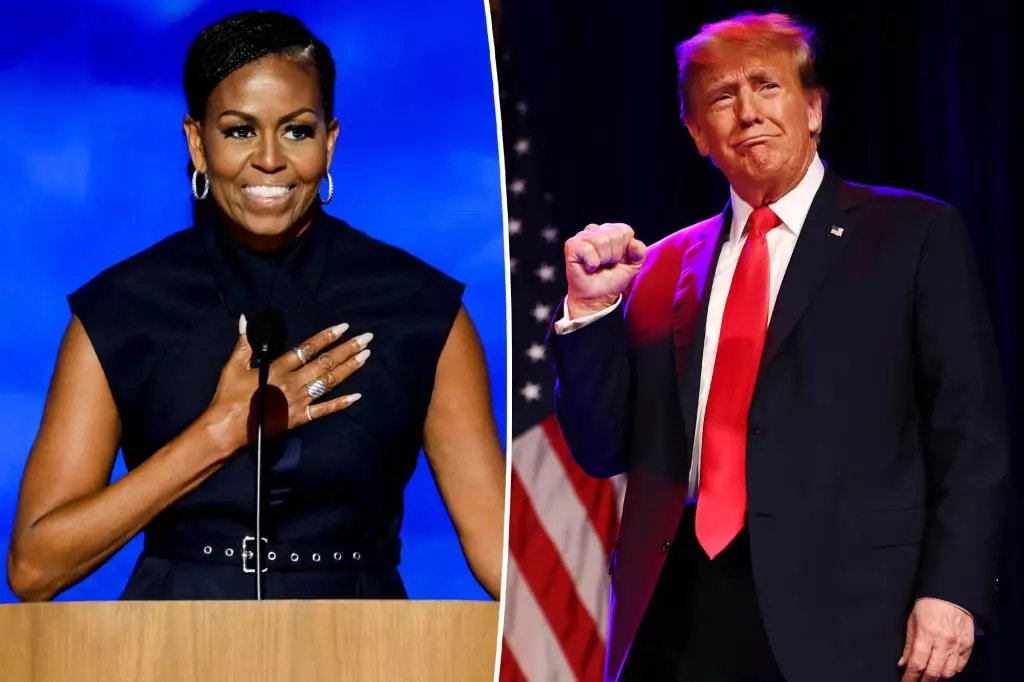In the realm of political ceremonies, attendance—or lack thereof—holds profound significance. The decision by Michelle Obama to skip Donald Trump’s inauguration is not merely a personal choice; it serves as a public declaration that reflects her values and sentiments about the political climate. Amid a backdrop of perceived cordiality between Trump and former President Barack Obama, Michelle’s absence makes a powerful statement. It invites scrutiny not just of the individuals involved, but of the larger issue of political alignment and the expectations of former First Ladies.
### A Stance Against Phoniness
Sources close to Michelle Obama have characterized her decision to forgo the inauguration as a deliberate move, rooted in authenticity rather than tradition. The phrase “no phony” emerges as a refrain, underscoring her reluctance to participate in what she views as an unprincipled political moment. While her husband engages in a polite façade alongside Trump, Michelle stands apart. From her perspective, attendance at the inauguration would imply a level of endorsement for a figure she has publicly criticized, particularly during the tumultuous political battles leading to the 2020 election.
This delineation of values is not new for Michelle Obama. Throughout her public life, she has maintained a consistent commitment to honesty over performative engagement. Her absence is indicative of a broader theme in her activism: a refusal to normalize behavior that she perceives as damaging to societal values.
Political Activism Beyond the Spotlight
Michelle Obama’s political stance has evolved significantly over time. Whereas she initially took a high road to maintain decorum by attending Trump’s inauguration back in 2017, her views have sharpened with each election cycle. During the Democratic National Convention in 2020, she eloquently articulated her concerns about Trump’s leadership, highlighting an inherent bias against those who don’t fit his narrow worldview. This rhetorical stance is crucial, as it exhibits her transformation from a passive participant in political discourse to an active voice demanding change.
Michelle’s reference to Trump as a figure who propagates fear resonates beyond the immediate context of her own experience. It touches on broader themes of racism and inequity that have plagued American society. The intersection of race and politics remains pivotal in America, and her statements reflect the concerns of many who feel marginalized by Trump’s political strategies, particularly those that have historical roots in discrediting Black leadership through the birther conspiracy.
### The Ripple Effect of Absence
In a carefully curated political landscape, Michelle Obama’s absence has consequences that extend beyond her decision. It inadvertently raises questions about the broader expectations placed on public figures and their participation in ceremonial events. Former presidents and their spouses traditionally attend the inaugurations of their successors, but the shift in this norm reveals a growing awareness of the complexities surrounding political alliances.
Furthermore, Michelle’s situation highlights the nature of consistency and alignment in contemporary politics. As the Obamas move forward, flanked by political allies and adversaries alike, Michelle’s absence stands resonant in her refusal to align with a presidency she has vehemently critiqued. It is a conscious separation that reflects adherence to her principles, which many constituents and supporters value highly.
Michelle Obama’s absence from Donald Trump’s inauguration provides a nuanced perspective on the role of authenticity in public life. In an age where appearances can often overshadow true conviction, her choice reverberates as a clarion call for integrity amidst political tumult. While her husband may choose to engage in conciliatory gestures, Michelle remains steadfast in her commitment to authenticity, standing as a figurehead for those who prioritize values over appearances.
In doing so, she reinforces the notion that true leadership often requires a willingness to stand alone, even in the face of societal expectations. Her thoughtful engagement with the political landscape serves as a subtle yet potent reminder of the importance of genuine representation, leadership, and the unyielding pursuit of a political culture grounded in integrity.

